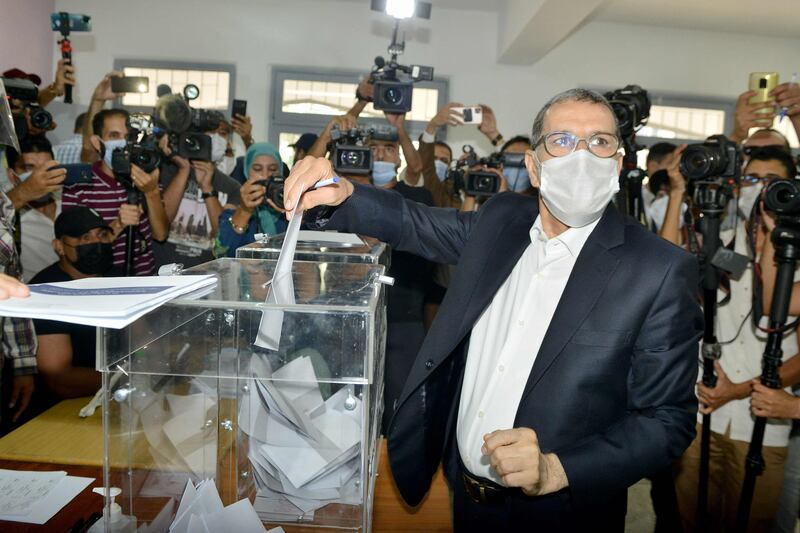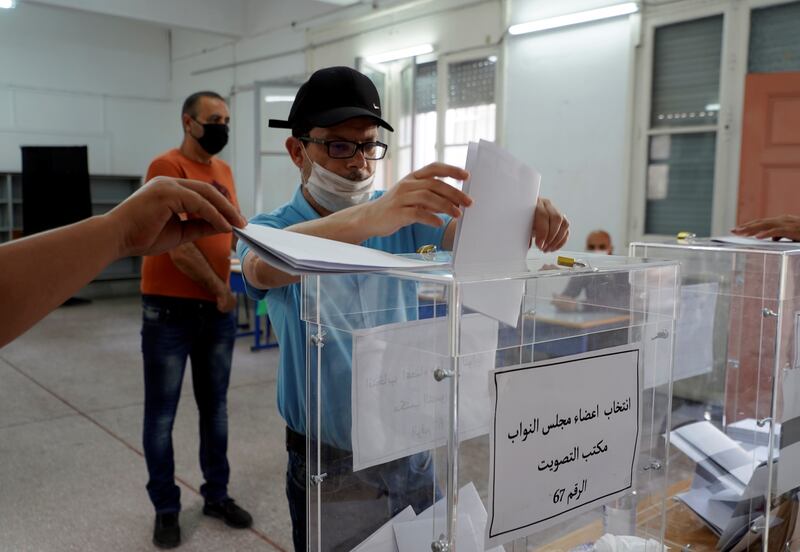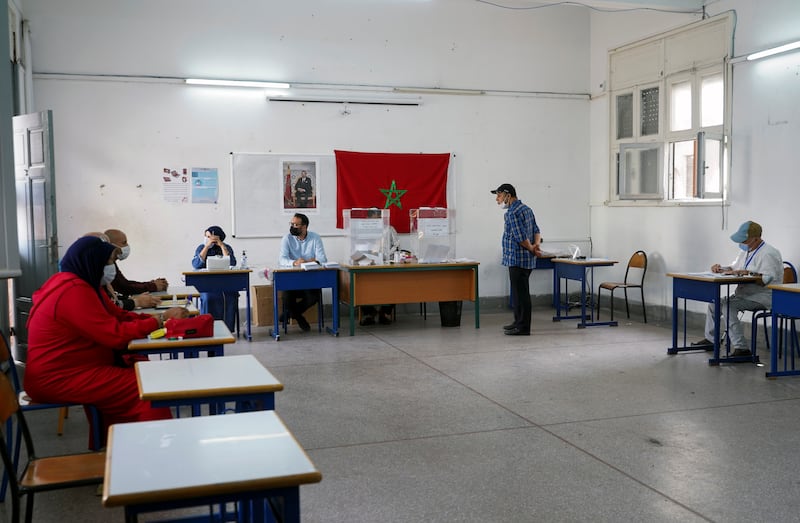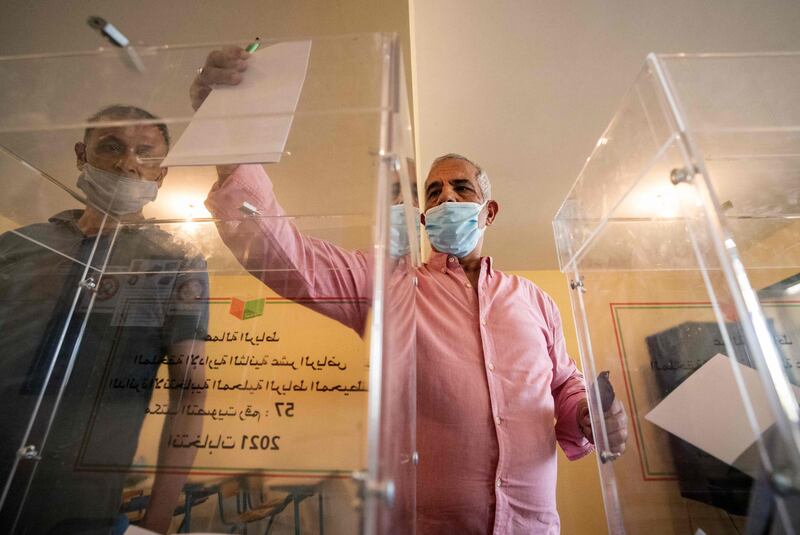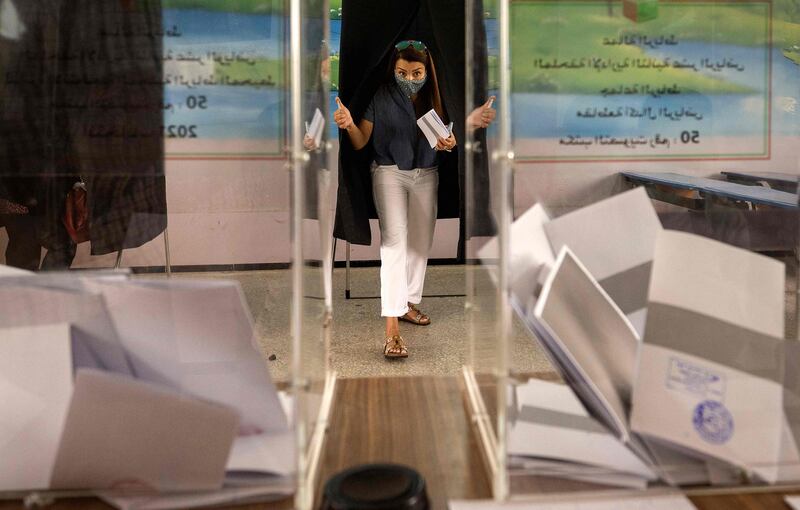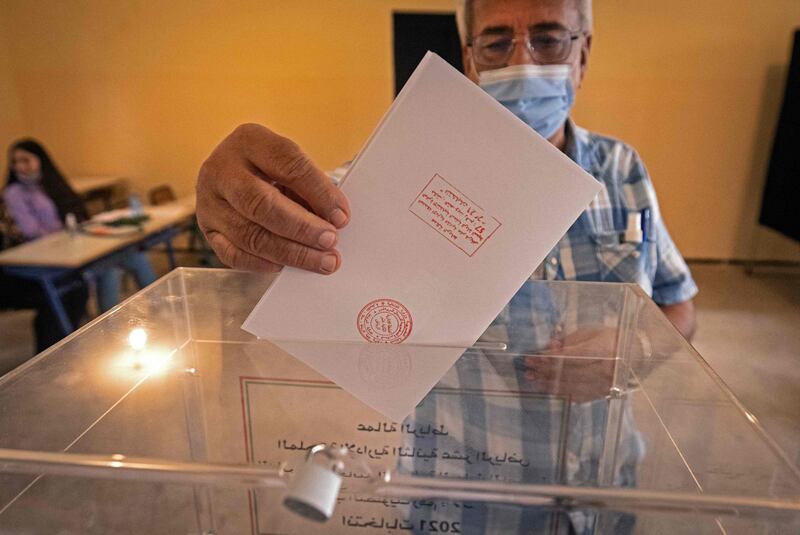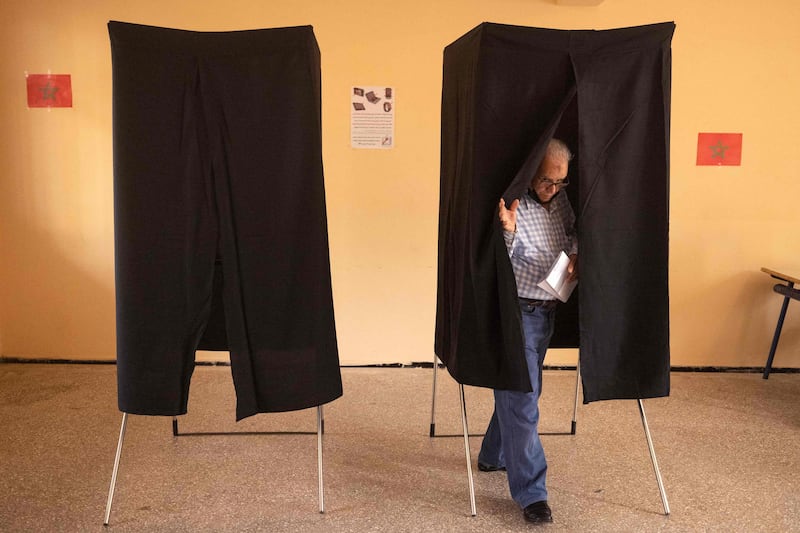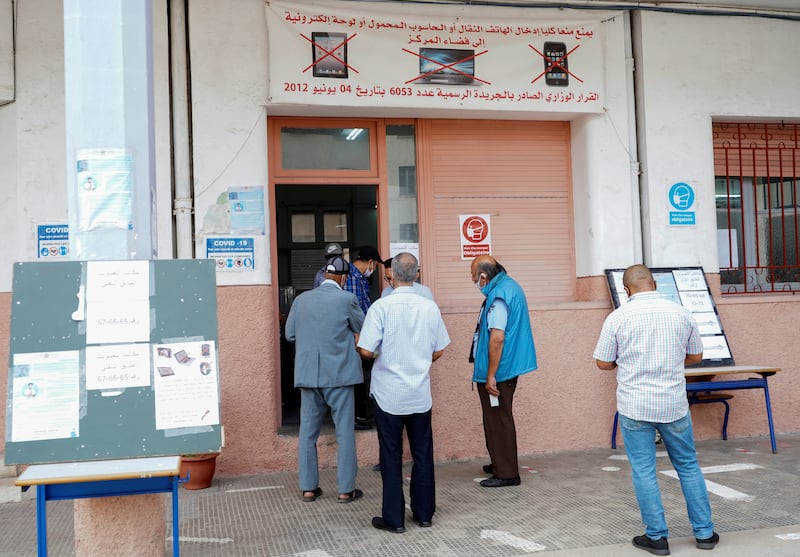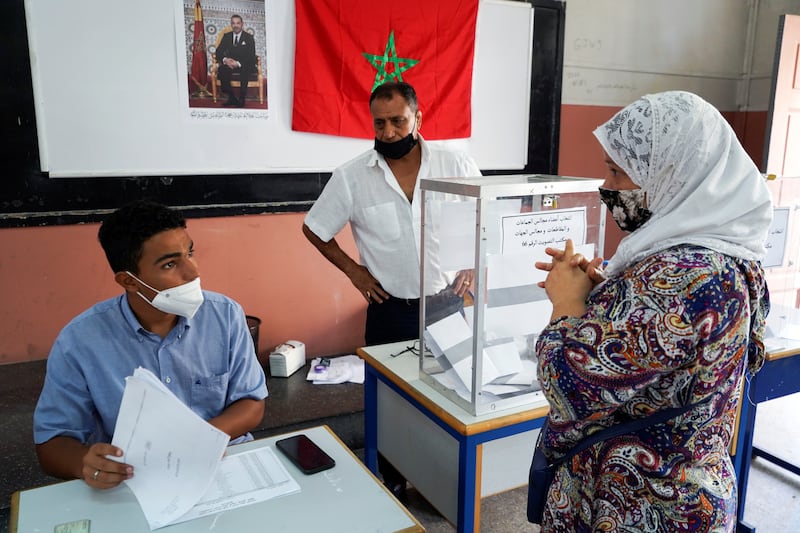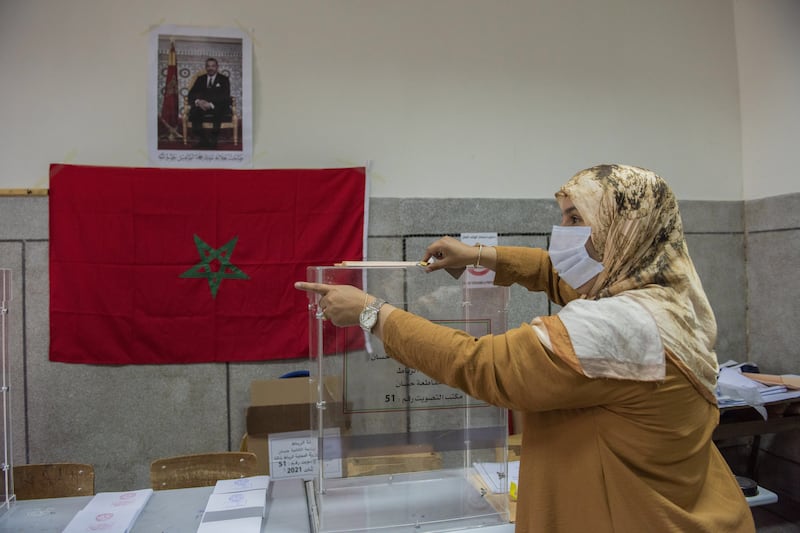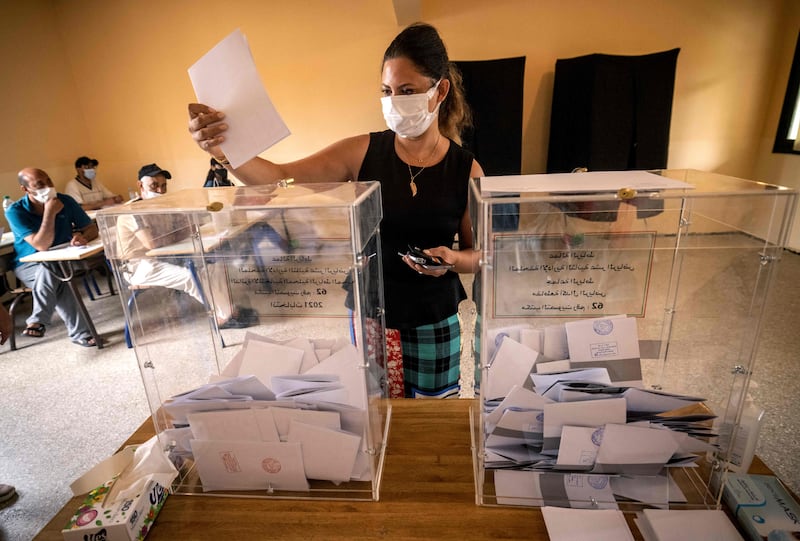Mariam Iblil walked home with a heavy heart from the Justice and Development Party (PJD) offices in Rabat on Thursday, a few hours after the crushing defeat of the long-ruling Islamists in the parliamentary elections.
Losing dozens of seats in parliament has extinguished any hope for the party to stay in power and could spark a full-blown crisis among its leaders.
“The internal schism in the party was very evident during the election campaign, and the leadership of the PJD succeeded in concealing it for five years. But the picture is now clear, and it is expected that even members of the party didn't vote for it,” Ms Iblil, a 26-year-old supporter of the PJD, told The National.
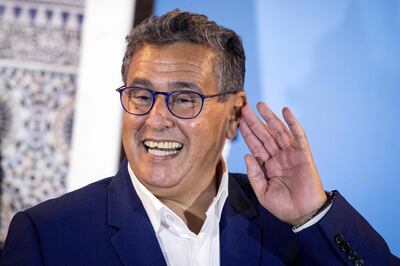
The PJD, which headed the ruling coalition for a decade, saw its support collapse from 125 seats in the outgoing assembly to just 12.
It was far behind its main liberal rivals, the National Rally of Independents (RNI), led by billionaire tycoon and Agriculture Minister Aziz Akhannouch, and the Authenticity and Modernity Party (PAM), with 97 and 82 seats respectively, and the centre-right Istiqlal Party, with 78 seats, in the 395-seat assembly.
King Mohammed VI will name a prime minister from the party that won the poll to govern the nation of 36 million for the next five years.
The gloomy mood of PJD leaders reflected months, if not years, of public disappointments, while the crowd of supporters outside their offices was far smaller after the results.
“Shocking, harsh and unexpected results even from the most pessimistic person in our party,” says PJD member Maelainine Amina, in a public post on Facebook.
“The party must admit its defeat and boldly and courageously study its underlying and apparent causes. The current leadership took over a strong and coherent party which is today weak and broken. The Secretary General must admit the party's defeat, submit his resignation and call for a realistic assessment of the situation. Big parties might become weaker but never die.”
نتائج صادمة وقاسية وغير منتظرة حتى من أكثر المتشائمين... هو توصيف وليس موقفا. الموقف يجب أن يكون في مستوى الحدث: على...
Posted by Maelainine Amina on Thursday, September 9, 2021
'A decade of delusion'
The PJD and the RNI had heated exchanged in the days leading up to the vote.
Former prime minister and PJD leader Abdelilah Benkirane attacked the RNI boss, Mr Akhannouch, in a fiery Facebook video on Sunday.
“The head of government must be a political personality with integrity who is above suspicion,” he said.
Mr Akhannouch retorted in an interview on Monday that the attacks were “an admission of failure” by his opponents.
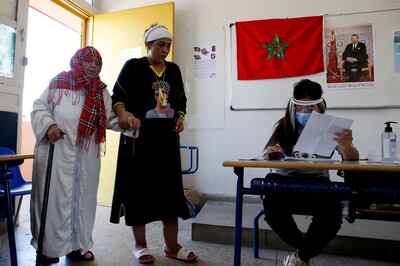
Turnout was 50.35 per cent, Interior Minister Abdelouafi Laftit said, higher than 43 per cent at the previous legislative polls in 2016, but down from 53 per cent during the 2015 local elections.
Voters expressed frustration with the system on Thursday.
“I did not vote for the PJD because it took harsh and unpopular decisions against the middle class. We have been under its delusions for 10 years. A complete waste of time. More and more, the leaders of the party don't practice what they preach. Thank God they are exposed,” Hassan Koko, a 32-year-old primary schoolteacher, told The National.
Mohamed Es-Sayid, a 60-year-old minimarket owner, echoed the same sentiment.
“I think that the RNI has competent people and that's why I voted for it, because the PJD has failed. My home city Casablanca, for an example, was completely neglected under the PJD and I gave my vote in the local elections to Nabila Mounib of the Unified Socialist Party (PSU)," he said.
The PJD had hoped to secure a third term leading a ruling coalition, 10 years after it swept to power after the unrest in the Middle East.
In 2011, the North African kingdom adopted a new constitution, devolving many of the monarch's powers to parliament and the government.
For the first time since the first elections were held in Morocco in 1960, parties' shares of seats will be calculated based on registered voters, rather than those who actually cast their ballots, in an amendment seen as favouring smaller parties.
The Islamists' defeat was expected despite the absence of opinion polls that are banned near election time by law.
“The PJD was preoccupied with coalition governments and the politics of cutting deals with other parties to stay in power. Its promises in the last elections of improving living conditions for the people sounded all too familiar to many voters. Empty ones,” Younes Masskine, the head of the Moroccan Institute of Policy Analysis (MIPA), told The National.
